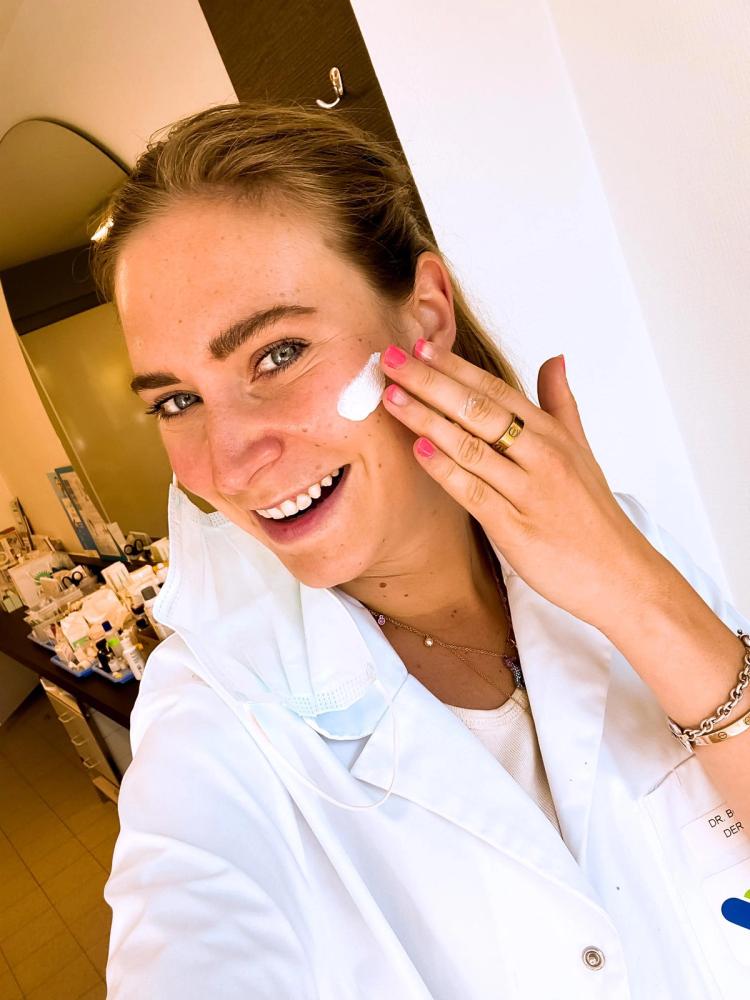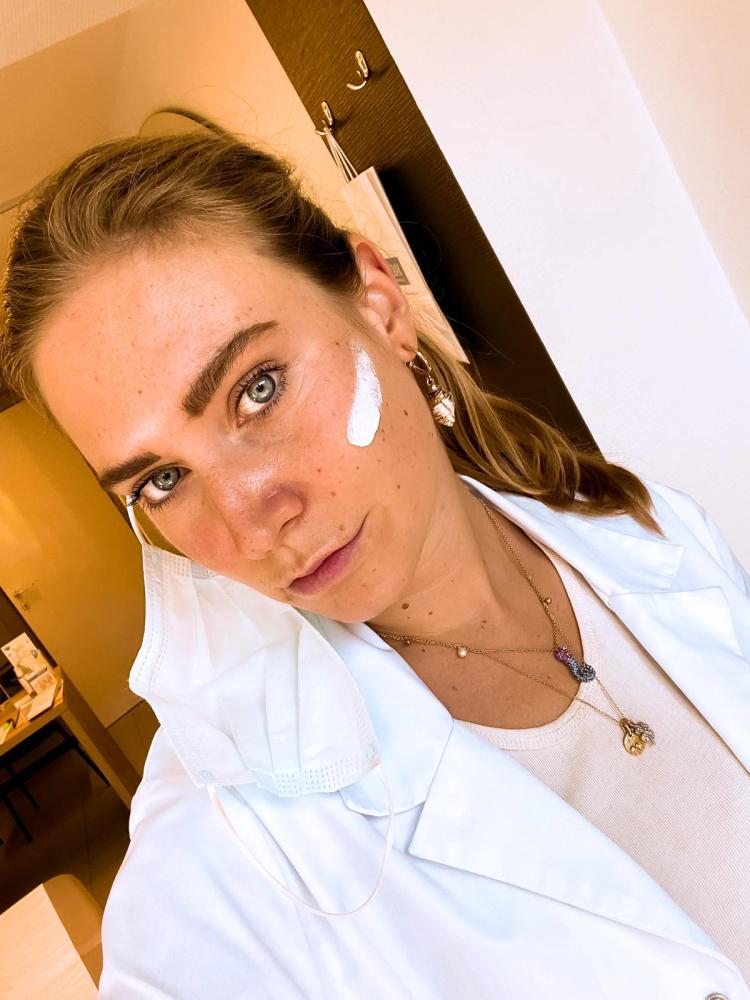
In my daily practice, I receive questions on a daily basis about what kind of sunscreen won't cause break-outs in oily skin. More even, I figured it's a specific concern bothering not only patients suffering from acne, but also non-acne patients.
Why is sunscreen so important, especially when you have acne?
People with oily skin often skip applying sunscreen because it makes their skin look greasy with the formation of pimples. It is however of great importance to protect yourself against the sun, since sun exposure has a big impact on the progression of acne. Here's why:
☼ UV-A rays (specifically UVA1) and blue light have anti-inflammatory effects, and therefore it might seem like your acne gets better in the sun. But what UV and blue light also do, is increasing the thickness of the outer skin layer inducing a dysregulation of our skin microbiome. This may worsen the presence of closed comedones (whiteheads), causing inflammation and acne flare-ups in Fall.
☼ In contrast, UV-B rays cause inflammation and increase sebum production and proliferation of keratinocytes.
☼ Secondly, studies have shown that UV-A can induce postinflammatory hyperpigmentation on acne skin (due to irritation, excoriations), especially in dark skin types and severe inflammatory acne. Sunlight induces the production of melanin, and this is why, if unprotected, acne scars stay dark.
Another reason why it is absolute mandatory to wear sunscreen when suffering from acne, is that several acne treatments (antibiotics, isotretinoin, vitamine A creams) make our skin more vulnerable to sunlight.
How does sunscreen cause break-outs?
→ It contains the wrong ingredients: like oxybenzone, avobenzone, retinyl palmitate or para-aminobenzoic acid. Also a high concentration of alcohol is nefast in acne-prone skin.
→ Too thick or oily substance: around every corner you'll find sunscreens based on coconut or grapeseed oil.
→ You’re using expired sunscreen or tend to leave it baking in the sun: which causes breakdown of the active substances.

How to choose the right sunscreen for oily, acne-prone skin?
Some general advice regarding sunscreen for oily skin:
♥ Look for the word ‘non-comedogenic’, which means pores won’t be easily clogged.
♥ Mineral (physical) sunscreens, while they may be non-comedogenic, tend to be chalky in consistency. Mostly, chemical sunscreen will be more suitable for oily skin.
♥ Avoid oil-based sunscreen.
♥ Avoid only-natural formulations: their protection is weaker since you only get higher SPF level using more scientific ingredients.
♥ Mist formulas, sprays, gels of chemical sunscreens with a water or light liquid base are less occlusive.
♥ Use sunscreen with a tint to avoid occlusive make-up layers afterwards
♥ Don’t use sunscreen meant for your body on your face, since these often have a much greasier texture
Secondly, look out for any of these ingredients:
♥ Anti-inflammatory, sebumregulating agents: salicylic acid, lactic acid, glycyrrhetinic acid, niacinamide (vitamine B3), zinc
♥ Antioxidants: licochalcone A, thiamidol, vitamine E
♥ Natural amino-acids: L-carnitine
♥ Plant-based, anti-inflammatory ingredients: celastrol, myrtacine
Okay, what’s the bottom line?
You absolutely should not skip sunscreen if you’ve got acne-prone skin. In fact, it’s even more imperative that you wear sunscreen if you have pimples. Remember that sunscreen should be applied every day year-round for the best protection, even when it's cloudy or rainy.
→ In case you missed my general overview on types of sunlight and sunscreens, click here !
→ Follow me on Instagram (@thesacred.skin) for a summary of all evidence-based skin care research.



